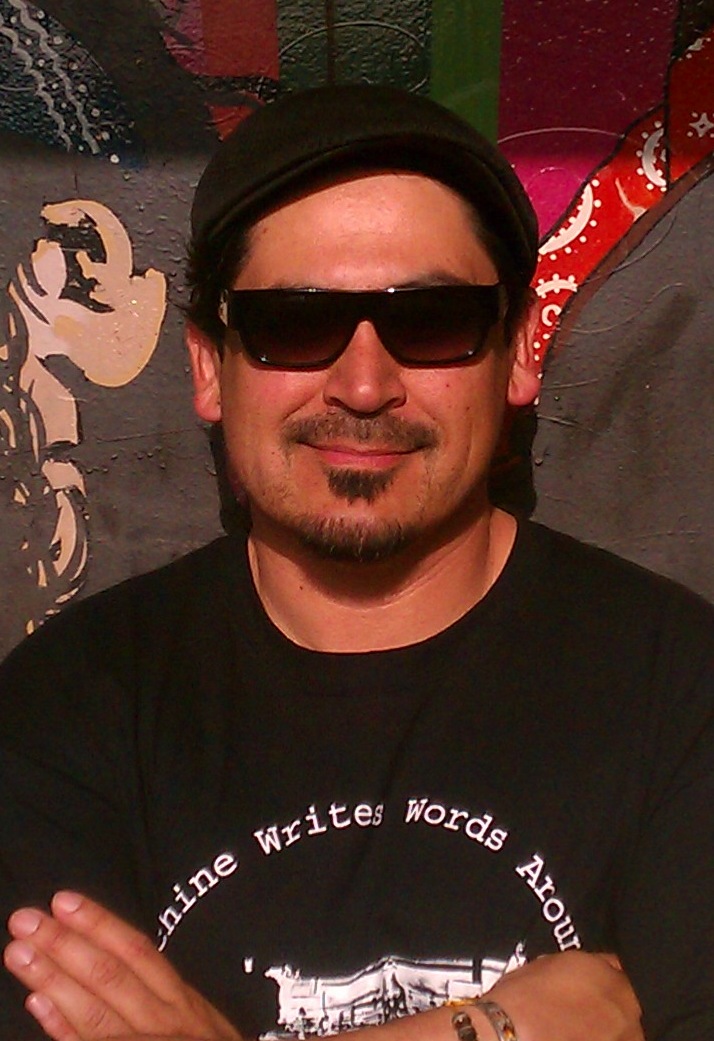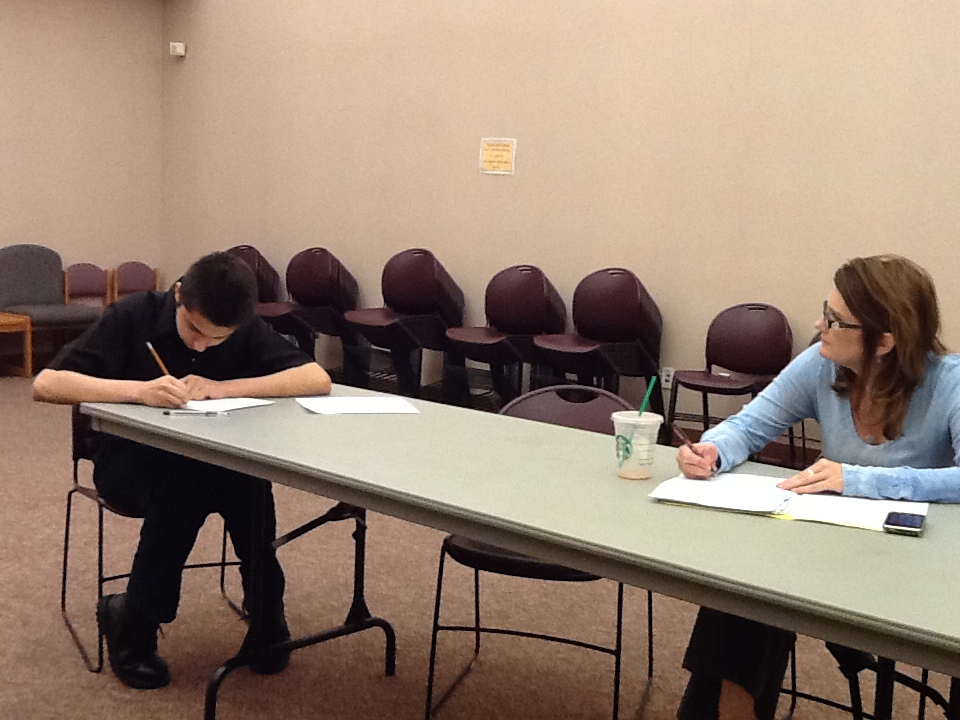For the month of July, P&W–supported poet and director of literary events, Randall Horton, blogs about his work with various organizations and events throughout the northeast. Horton is the recipient of the Gwendolyn Brooks Poetry Award, the Bea Gonzalez Poetry Award, and the National Endowment of the Arts Fellowship in Literature. A Cave Canem Fellow and member of Affrilachian Poets, Horton's lastest poetry collection Pitch Dark Anarchy will be published by Northwestern University Press in Spring 2013.
In April 2 011, during National Poetry Month, Poets & Writers funded Aquarius Press/ Willow Books to sponsor a workshop in Detroit, Michigan, at the Virgil Carr Cultural Center. The workshop participants included poets Victor Billione, Nadia Ibrashi, and Felecia Studstill, and began as an organic conversation on craft. We read from a wide range of poets, from Rachel Eliza Griffiths to Stephen Jonas to Evie Shockley. We looked at parallelisms in poems (cosmic nature versus the material world), the idea of “the definition” as a form poem, and the art of the line break, which we all concluded to be critical when fine-tuning the lyric qualities in the poem, and the poem as political mouthpiece.
011, during National Poetry Month, Poets & Writers funded Aquarius Press/ Willow Books to sponsor a workshop in Detroit, Michigan, at the Virgil Carr Cultural Center. The workshop participants included poets Victor Billione, Nadia Ibrashi, and Felecia Studstill, and began as an organic conversation on craft. We read from a wide range of poets, from Rachel Eliza Griffiths to Stephen Jonas to Evie Shockley. We looked at parallelisms in poems (cosmic nature versus the material world), the idea of “the definition” as a form poem, and the art of the line break, which we all concluded to be critical when fine-tuning the lyric qualities in the poem, and the poem as political mouthpiece.
I wanted to tailor each poet’s experience to suite his or her aesthetic intentions. For example:
Victor’s exercise asked: In what ways do you feel oppressed? Choose an object you own that seems to embody that oppression and/or privilege, and write a poem about it.
Nadia’s exercise asked: What communities of people do you identify with and feel you belong to? Write a poem from the voice of this collective “we,” talking about your troubles, your failings, celebrating your strengths…
…and Felecia’s exercise asked: Imagine someone who lives in another part of the world under very different economic and political circumstance. Have that person talk to you about your life in America from his or her perspective. You can also do this exercise by imagining someone else in America, but of a different class, race, and so forth.
Then they wrote. Here are excerpts from the poems created and used with their permission:
Victor: “I sleep well knowing these references are/Framed in revolution/Evolving into stories time has forgotten.”
Nadia: “Finally, we see the words,/the shape of mornings,/the secret place.”
Felecia: “Your anger is fear/you know. You know./You are as worthy of my life/As I am of yours.”
The idea of the workshop was to take writing samples from the participants and tailor each participant’s experience based on writing tendencies, likes, dislikes, and aesthetic intentions. This helped to create a multi-voiced workshop that paid close attention to the writer and ultimately asked the writer to expand beyond his or her imagination.
Photo: Randall Horton. Photo credit: Rachel Eliza Griffiths
Support for Readings/Workshops events in Detroit is provided by an endowment established with generous contributions from Poets & Writers Board of Directors and others. Additional support comes from the Friends of Poets & Writers.





 011, during National Poetry Month, Poets & Writers funded
011, during National Poetry Month, Poets & Writers funded  The Maya Angelou Library on Stockton’s southeast side sits near a tired slab of old homes and pothole-ridden streets, but this is where my next workshop is, and I’m excited for it. By now I’ve learned that behind each workshop door are people whose stories and voices will stay with me for days, sometimes months after. Suzy Daveluy, librarian and my host, conveys her worry about the number of people in attendance. Before I can reply we are approached by two teenage girls, their younger brother, and their mother. The girls introduce themselves as Emilia and Yvette. Their brother is Jesus, and their mother is Gloria.*
The Maya Angelou Library on Stockton’s southeast side sits near a tired slab of old homes and pothole-ridden streets, but this is where my next workshop is, and I’m excited for it. By now I’ve learned that behind each workshop door are people whose stories and voices will stay with me for days, sometimes months after. Suzy Daveluy, librarian and my host, conveys her worry about the number of people in attendance. Before I can reply we are approached by two teenage girls, their younger brother, and their mother. The girls introduce themselves as Emilia and Yvette. Their brother is Jesus, and their mother is Gloria.*  If I didn’t see him write those words out in front of me, I might have never believed he wrote it. His delivery is like a smooth Lenny Bruce, witty and sharp, confident. Suzy and I look at one another, and I know we’re thinking the same thing: We’ve found the future poet laureate of Stockton! Of California! Hell, of the United States!
If I didn’t see him write those words out in front of me, I might have never believed he wrote it. His delivery is like a smooth Lenny Bruce, witty and sharp, confident. Suzy and I look at one another, and I know we’re thinking the same thing: We’ve found the future poet laureate of Stockton! Of California! Hell, of the United States!